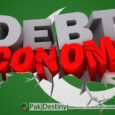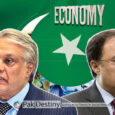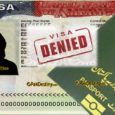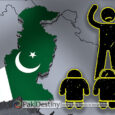
By Ismaeel Qasim
Pakistan is at a crossroads where crucial decision making is at play that can have far reaching consequences. Safeguarding tattered democracy or upholding withering human rights? Such are the policy questions at hand of the powerful few that eventually will direct lives of the weak many. It will be difficult to pinpoint where it got from bad to worse for Pakistan but there are a whole lot of factors that can be credited for such dismal performance.
75 years of independence in the country reeks of inefficiency, & mismanagement but never was it termed as arguably, a rogue state, where human rights are openly violated. Such is the sorry state of affairs this present day and resultantly the challenges facing the country are unprecedented. Reports of human rights violations, including curbs on freedom of expression, have become increasingly common. Media censorship and attacks on journalists have drawn international condemnation.
Questions being asked these days in the country and especially by foreign media shake the very foundations of democracy. For instance, questions relating to Arshad Shareef’s assassination? Imran Riaz Khan’s disappearance? Both happened to be very influential journalists in the country with a world wide reputation. Common masses are of the view that if they can end up with such fate for merely questioning the mighty then what will become of the ordinary citizens? What about accountability or simply upholding law and order that is the very basis of democracy?
Post 1947, Pakistan did face it’s fair share of troubles ranging from military rules, to political instabilities and economic crises but there was always the promise of a better future and safeguarded human rights that set the country apart from many other nations in the region. Sadly, that hope has been taken away from the masses. Landscape has changed such that today’s Pakistan paints a starkly grim picture. Corruption has plagued various government sectors, hindering progress and development. There is skyrocketing inflation and recent fuel hikes have taken the steam out of the struggling middle class. There is eroding public trust in political establishment and hence the divide between the government and the governed has widened more.
It will be safe to assume though that challenges Pakistan is currently confronted with go beyond simple administrative barriers. The legitimacy of the democratic process is a subject of intense debate. The fairness of elections has been questioned in light of allegations of rigging and political influence. Another sensitive topic is the military’s place in politics; some claim that it threatens the democratic system. Who is to say all this will not be repeated when the country heads into general elections at the end of this year i.e., if by any chance that happens.
Internationally, Pakistan’s internal issues have not gone unnoticed. Foreign media and governments have raised concerns about the state of democracy and human rights in the country. The scrutiny from the international community further intensifies the need for Pakistan to address these challenges.
One thing is sure, rulers and policy makers must confront these issues head-on, if there is to be any hope of reinvigorating the commitment to democracy and human rights. Transparency in governance, electoral reforms, and a free and fair media are essential components of a healthier democracy. Moreover, Pakistan should engage constructively with the international community to restore its image on the global stage. The nation’s commitment to human rights, once unquestionable, now faces scrutiny. Challenges to its democratic system also raises important questions about the nation’s future.
This dark period has not only exposed the vulnerabilities within the political and administrative systems but has also tested the resilience of citizens. It serves as a stark reminder that the path to progress is fraught with challenges, and the responsibility to address these issues falls on everyone, as individuals and as a collective society. However, with resolve and reform, Pakistan can emerge stronger, rekindling the spirit of hope that accompanied its birth 75 years ago.
The author is a working journalist, and analyst with a keen interest in socio-political challenges and non-traditional security threats including climate change. He holds a Double Masters Degree in Development Journalism and Eng. Literature followed by MPhil in Communication & Media Studies from Punjab University, Lahore. He tweets at @IsmaeelQasim






